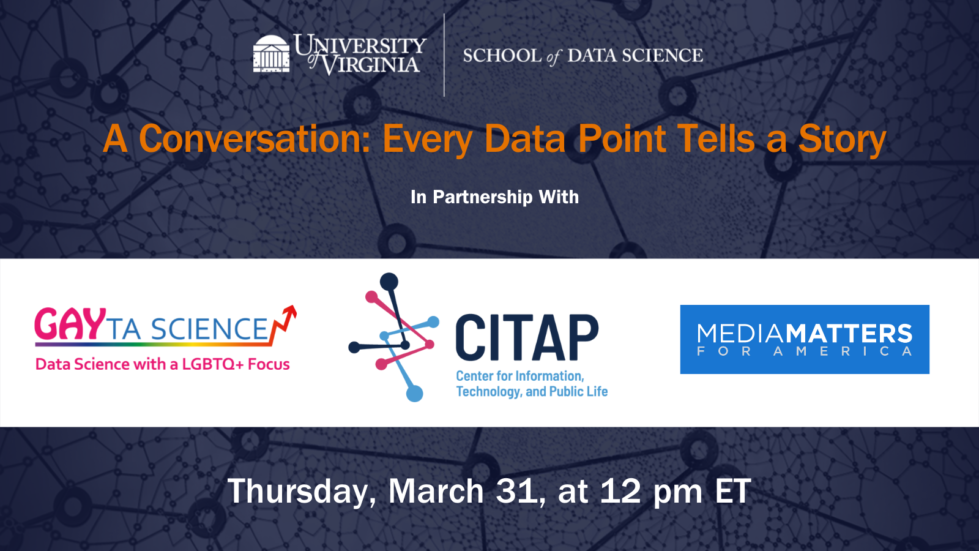This Transgender Day of Visibility (TDoV), we joined an incredible panel put on by the University of Virginia School of Data Science to have an important conversation about social media algorithms, mis/disinformation, and the LGBTQ+ community.
During the event, panelists covered the complexities of how transphobia, homophobia, racism, misogyny, and other discriminatory and extreme beliefs can rapidly spread on social platforms. Media Matters for America disinformation researcher Kayla Gogarty shared their recent study that found engaging with anti-trans content on TikTok quickly pushes users into rabbit holes of extreme far-right ideologies. She highlighted that companies exist to maximize profit by pushing engagement, leading to sensationalized content designed to appeal to emotions and create outrage.
Gayta Science’s own Kelsey Campbell reiterated that algorithms are not neutral and the way they recommend content is very deliberate. As a creator of LGBTQ+ content, they know firsthand that there are coordinated operations online to spread a transphobic agenda, and that these have a very large impact on the community.
Dr. Francesca Tripodi, Assistant Professor with the Center for Information, Technology, and Public Life at the University of North Carolina, Chapel Hill, added that inputs also play a role in algorithmic bias and manipulation. She explains that “the internet really becomes this place that’s highly manipulable because it’s tagged with all these phrases and keywords that are aligned with certain ways of thinking.”
The panelists also discussed popular methods proposed to counter and mitigate these issues, including community use policies, deplatforming, counter-messaging, and content moderation. Dr. Jess Reia, Assistant Professor at the UVA School of Data Science, provided an extremely important global perspective and knowledge of regulatory frameworks. They pointed out that content moderation does not work very well and relies on often exploitative and mentally taxing data labeling labor, mostly in the global south.
We rounded out the discussion with some perspectives on the role and future of Data Science, as well as the benefits and risks associated with being visible as an LGBTQ+ person online and in data systems. So many reasons to check out the full video recording online!
The biggest of thank you’s for UVA’s School of Data Science for hosting, Associate Dean of Diversity, Equity, and Inclusion Siri Russell for envisioning and creating such an important event, and our amazing moderator Donna Price for guiding such a timely conversation. While there is much progress to be made, it is encouraging to see LGBTQ+ issues being talked about while we continue to shape the future of Data Science.

